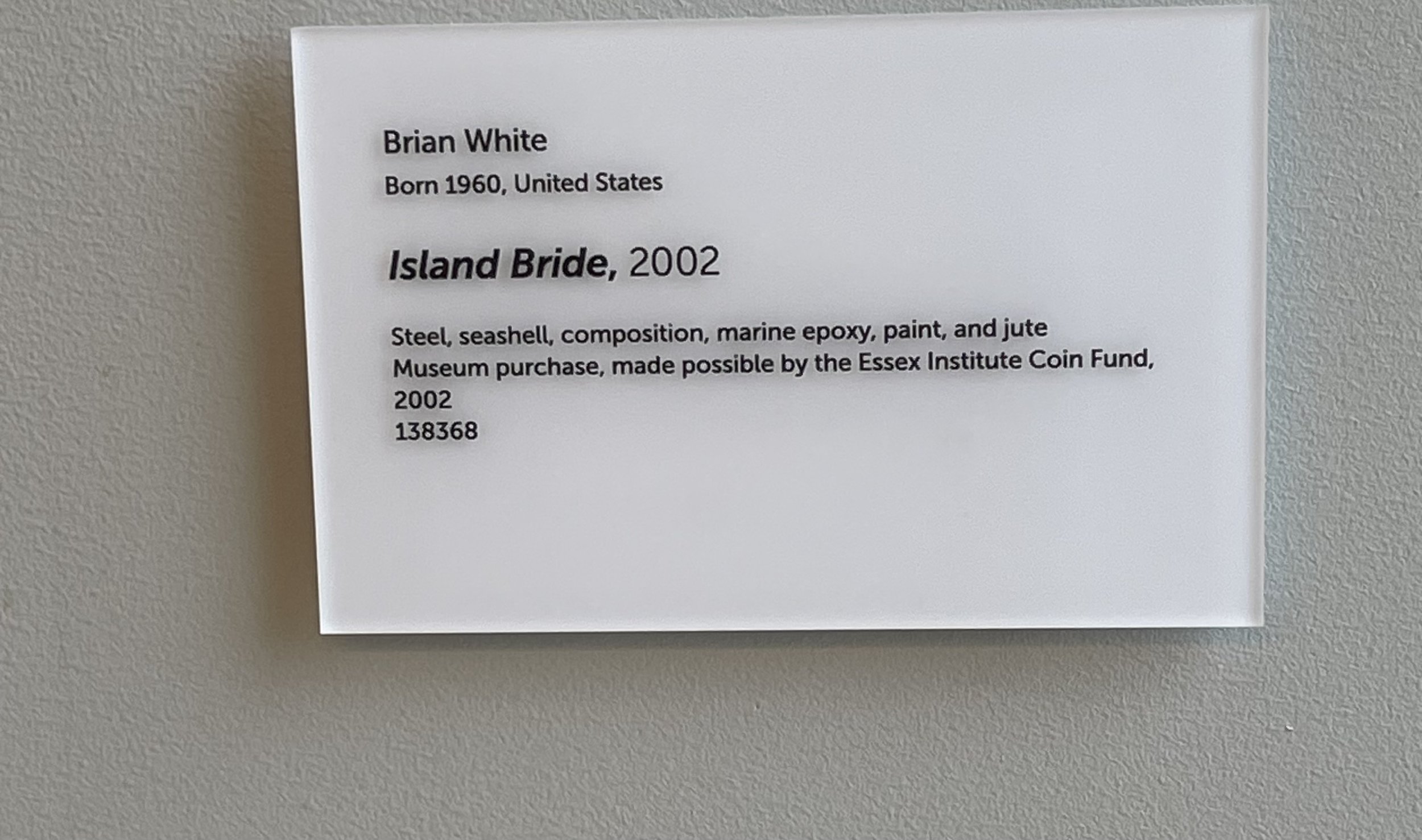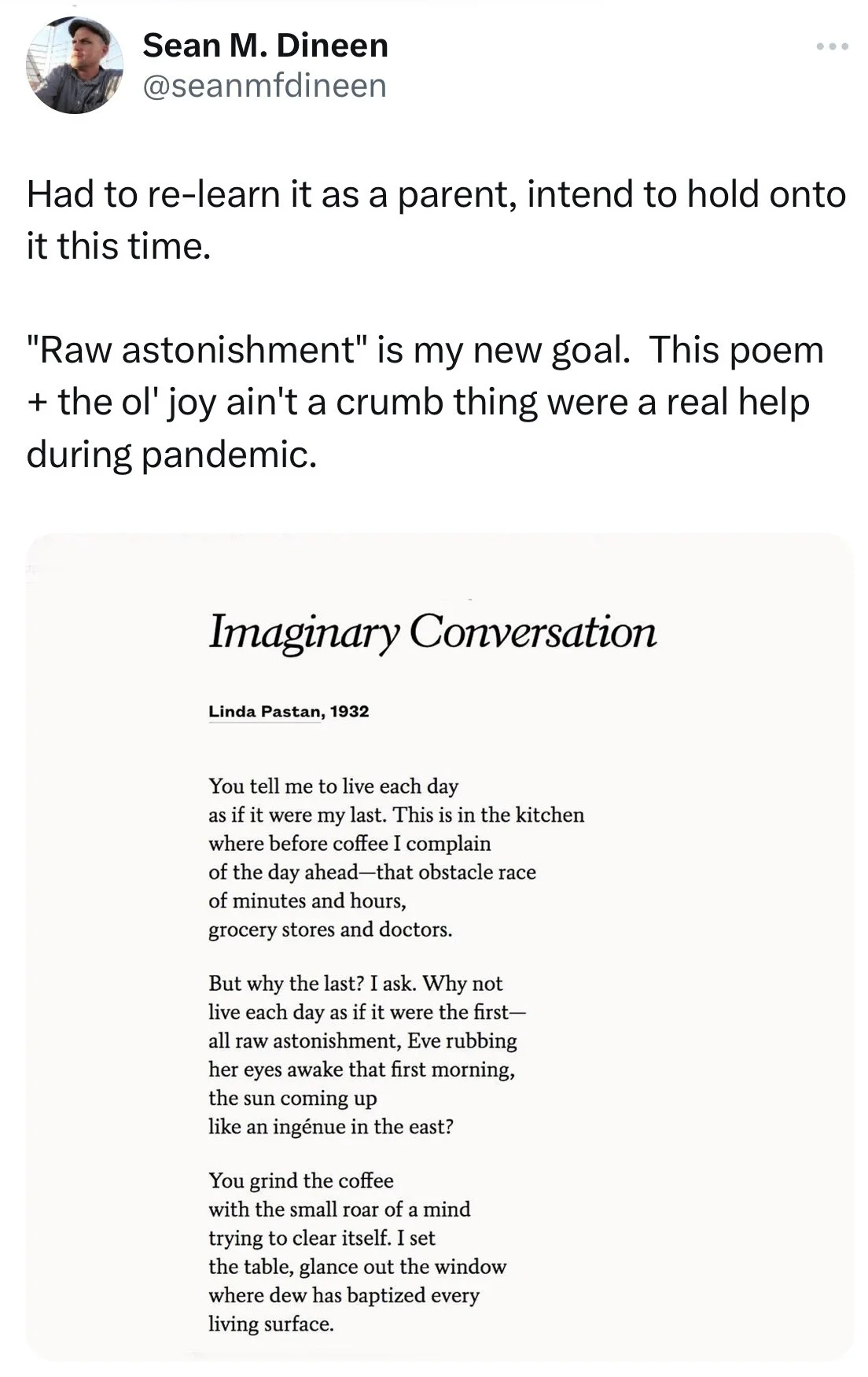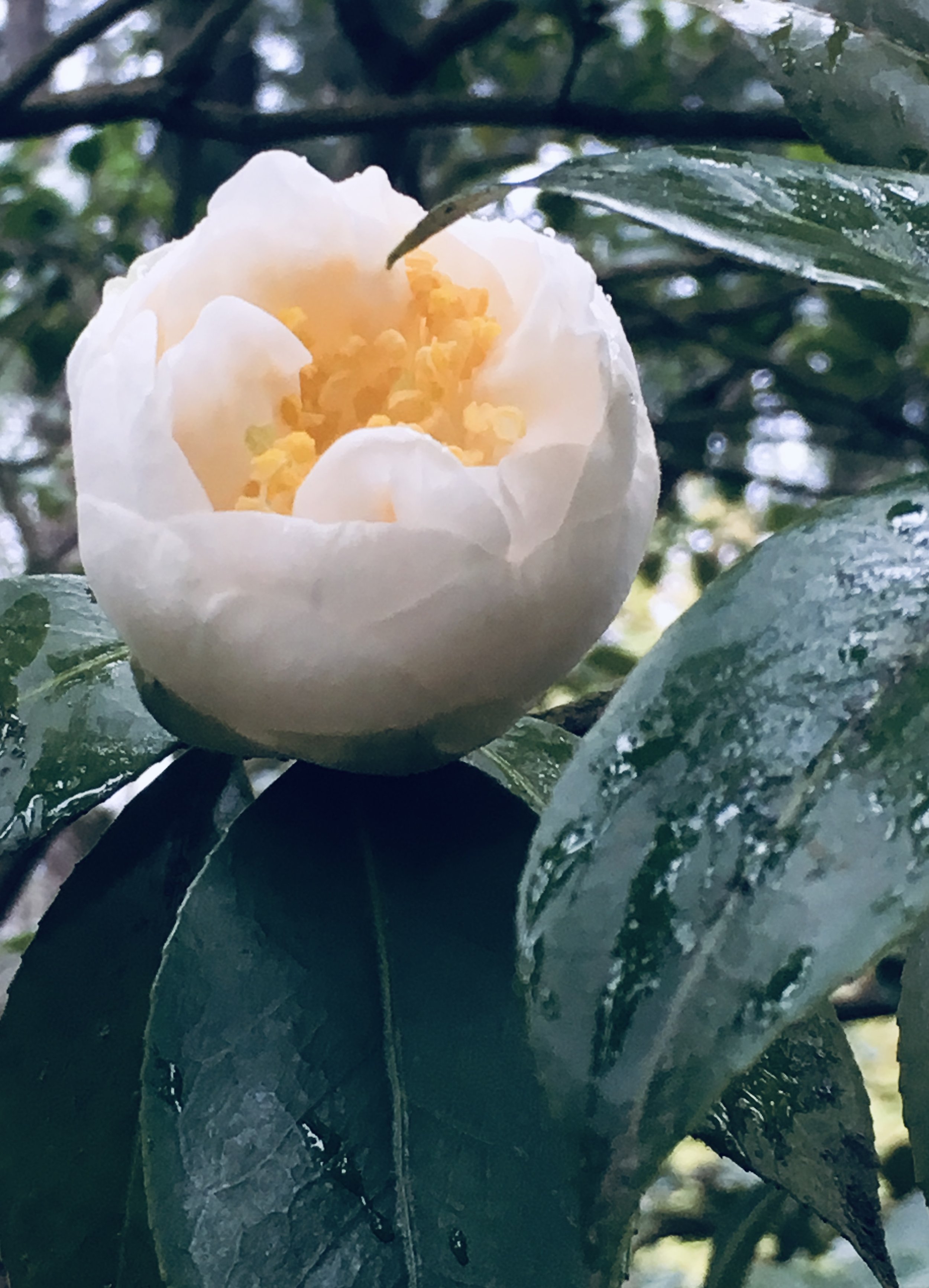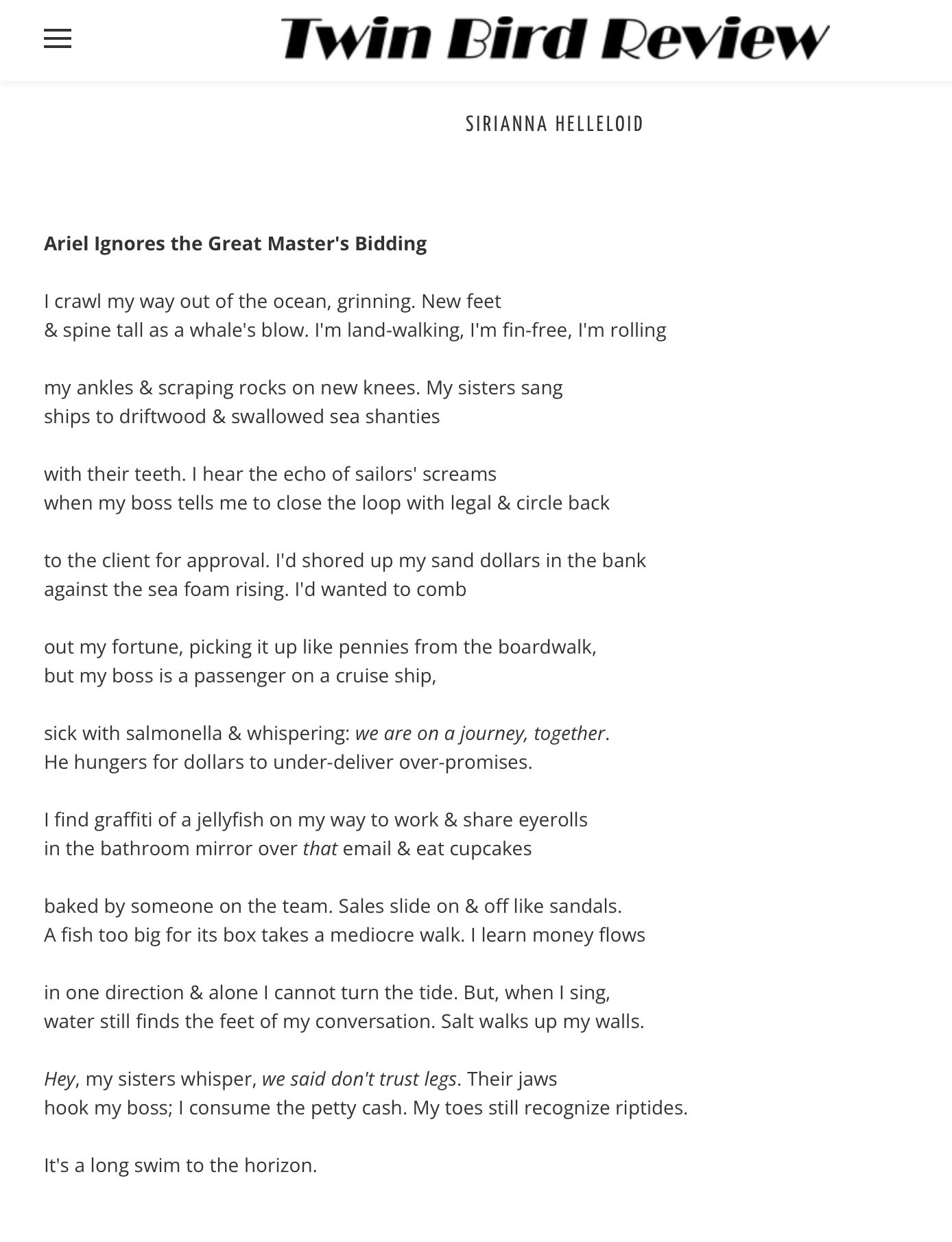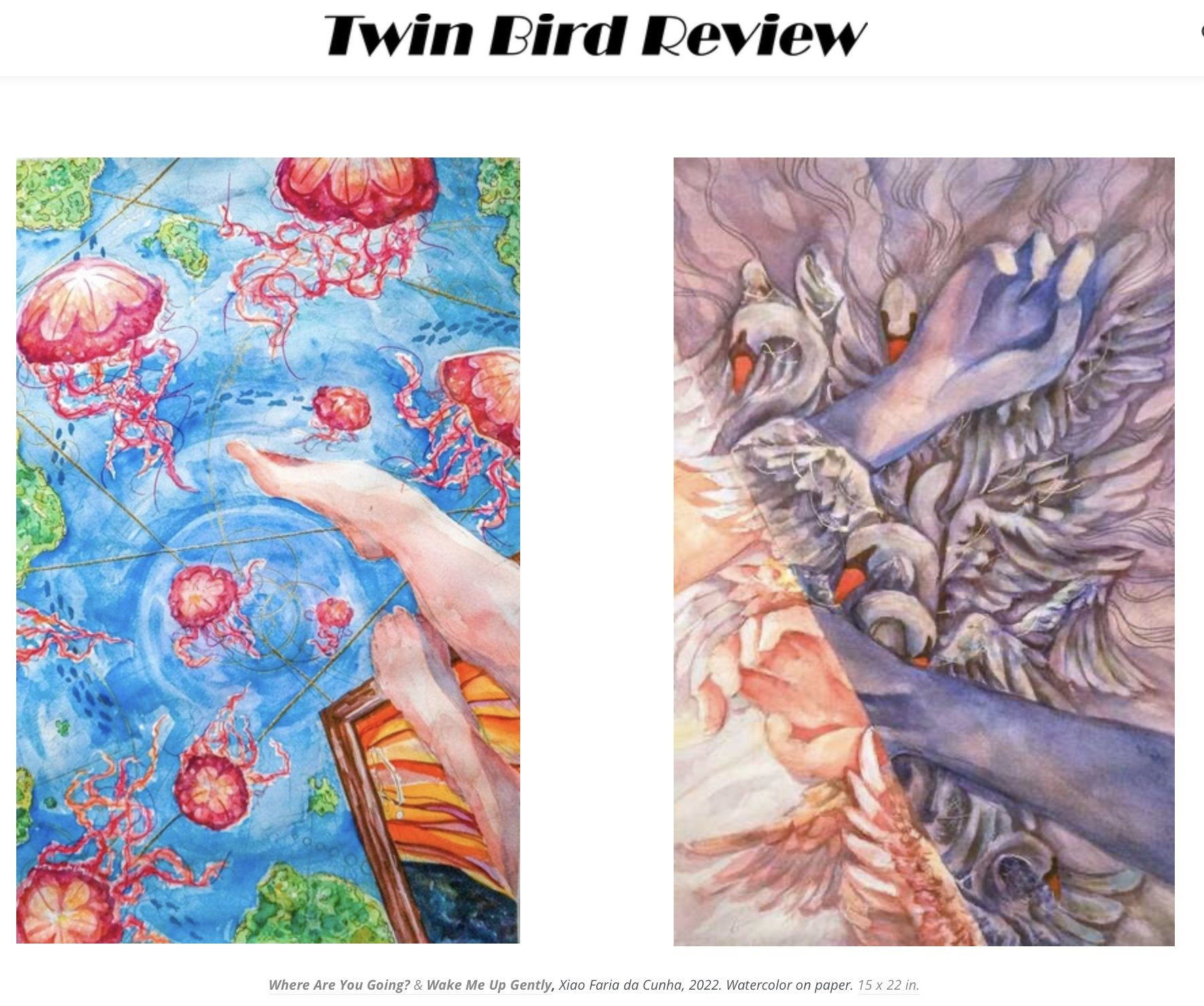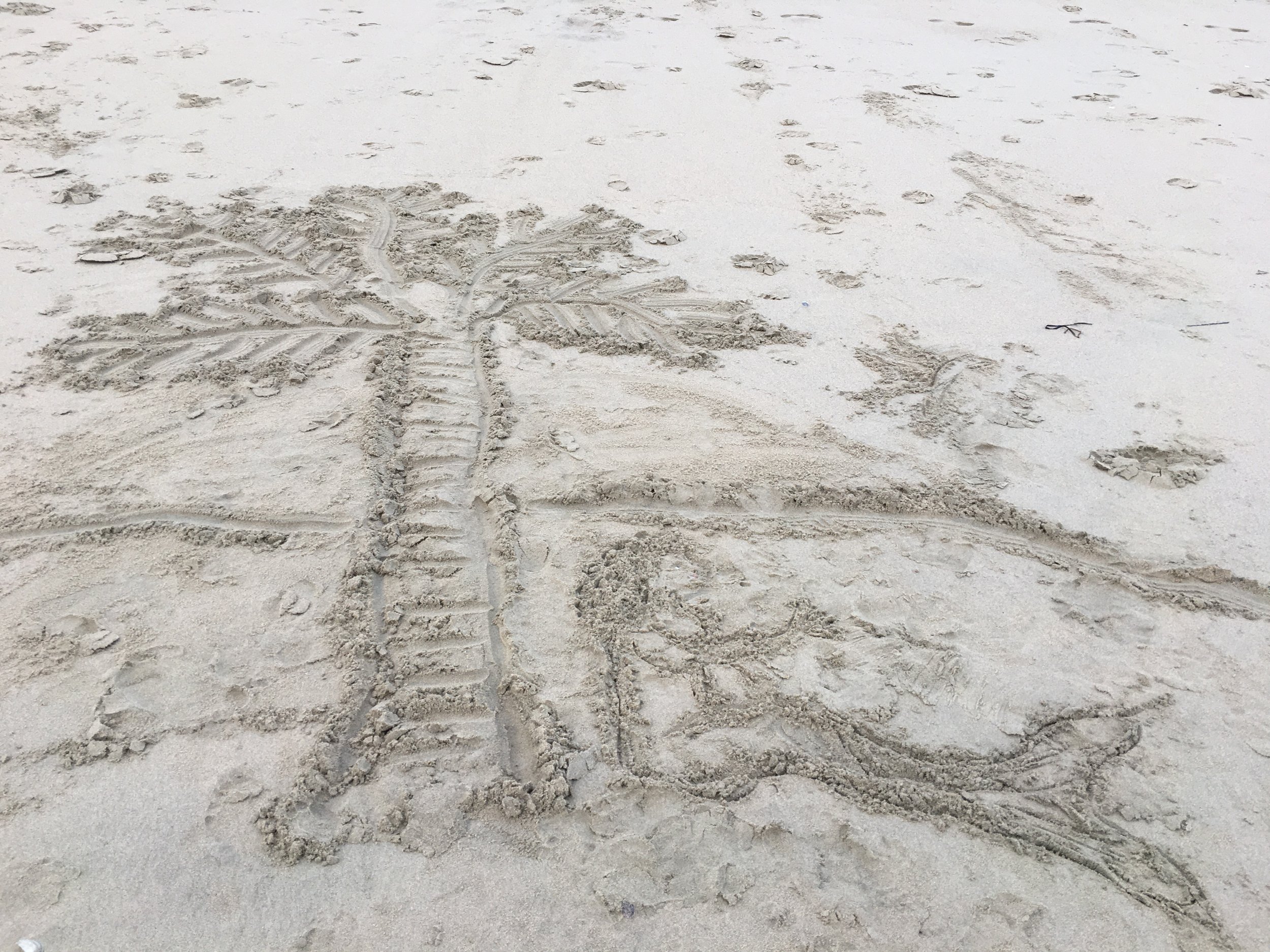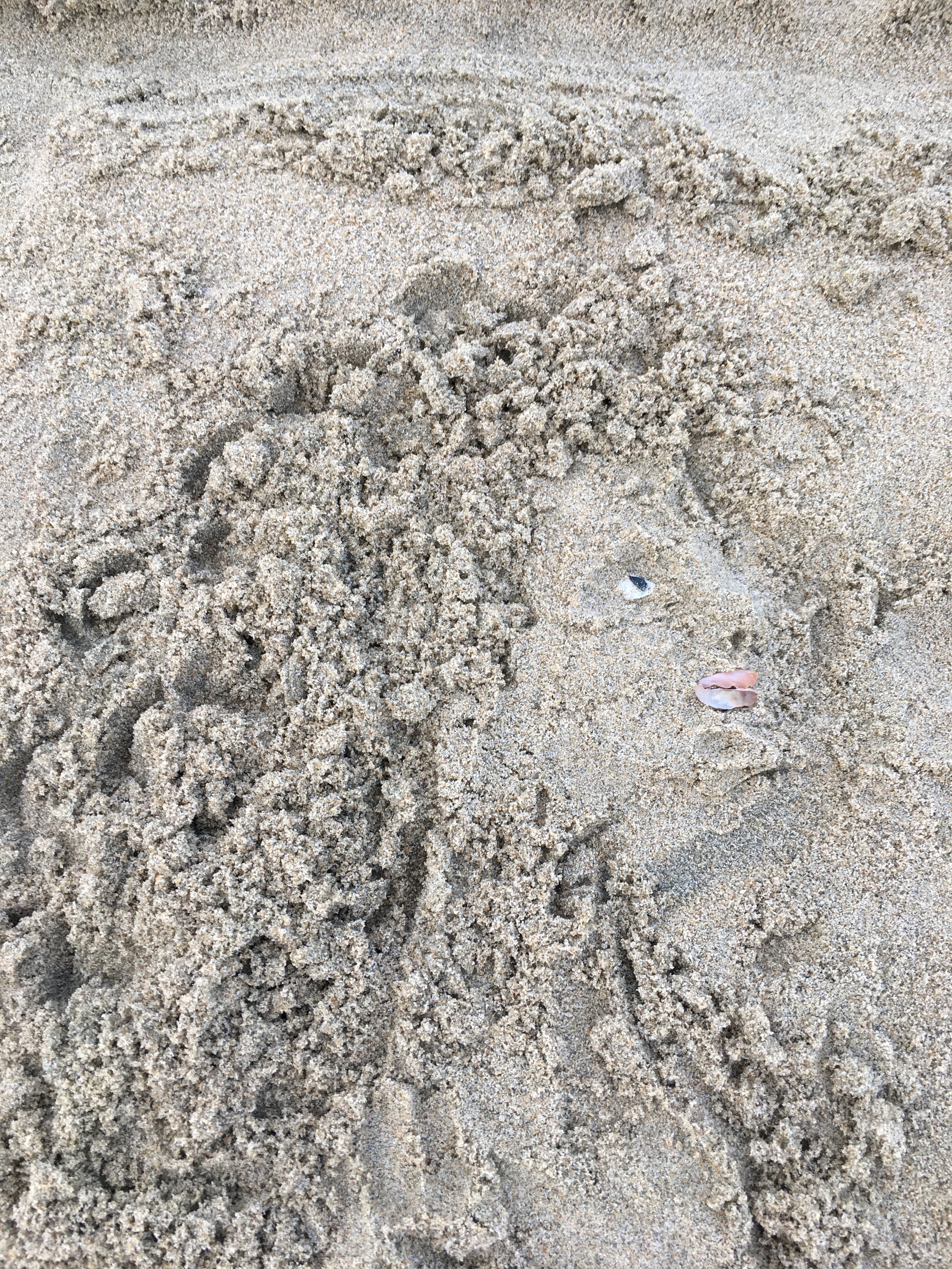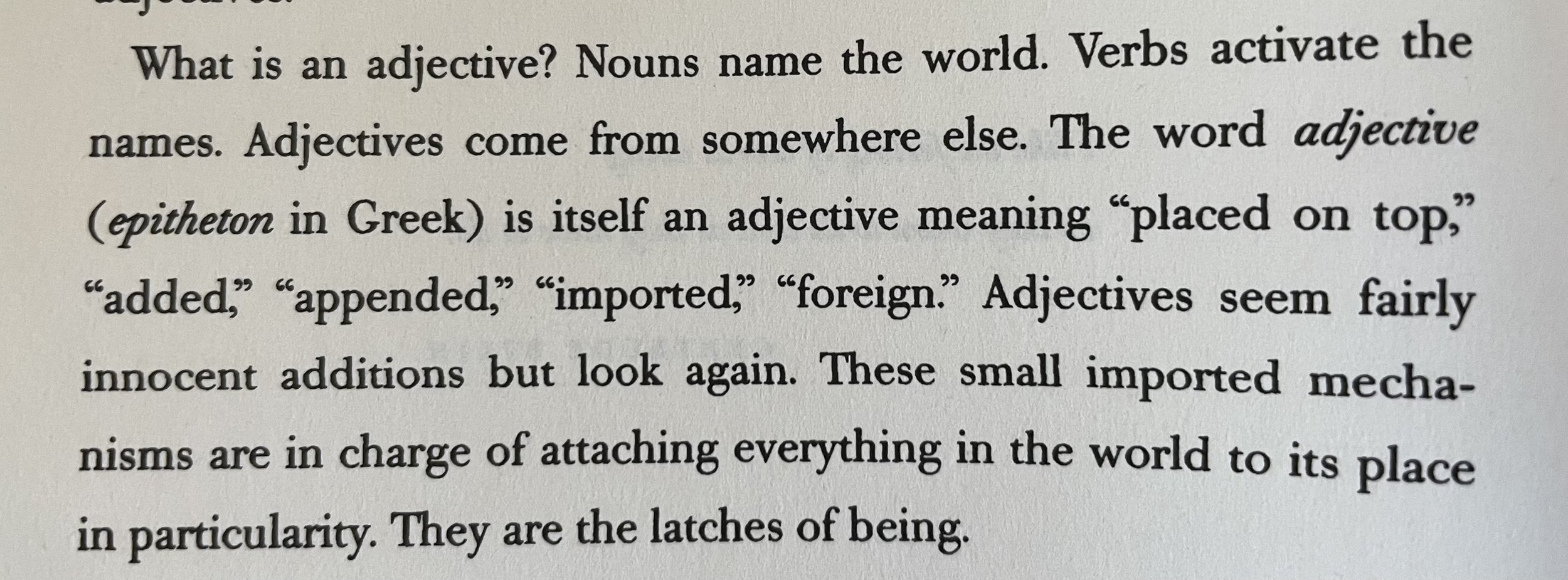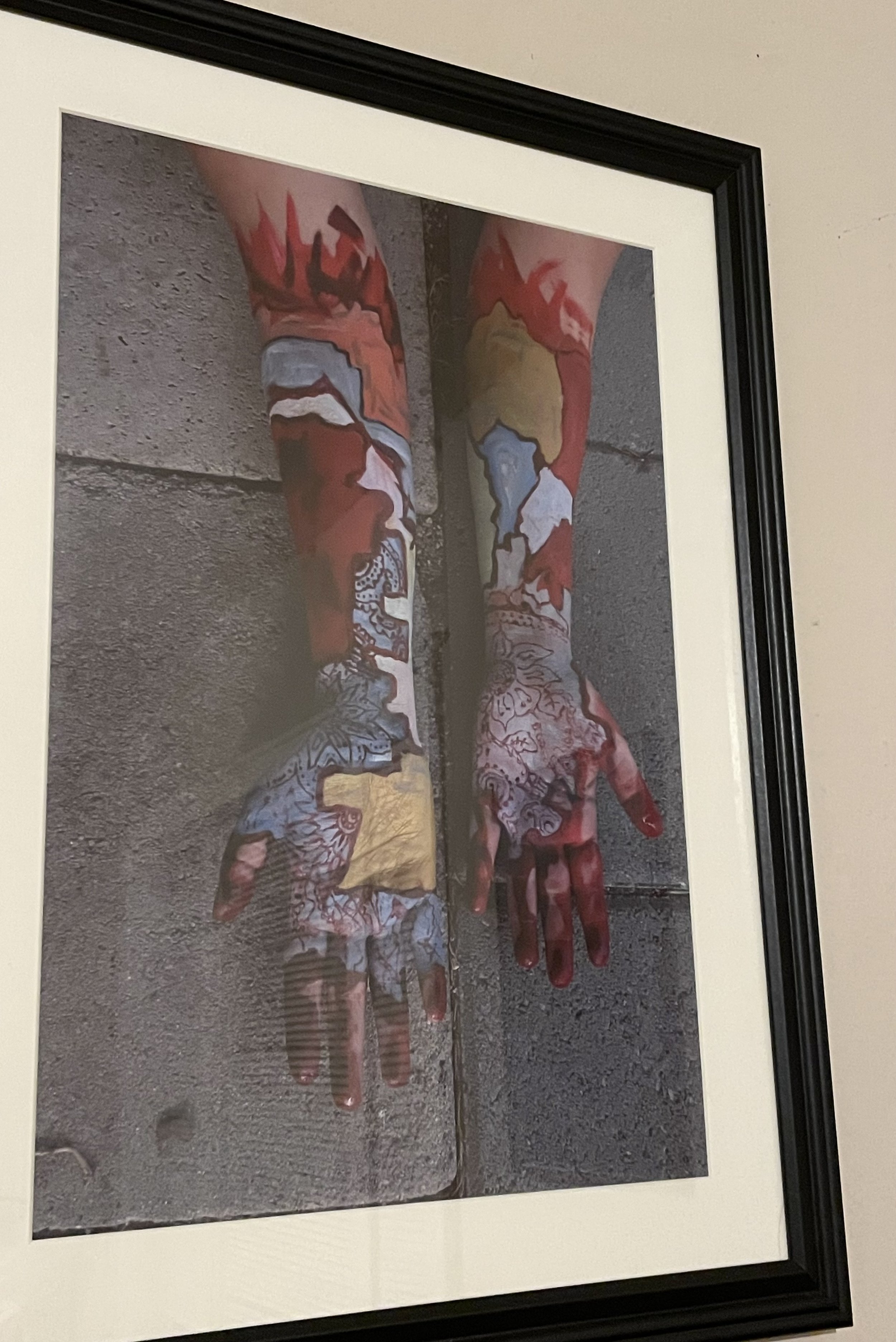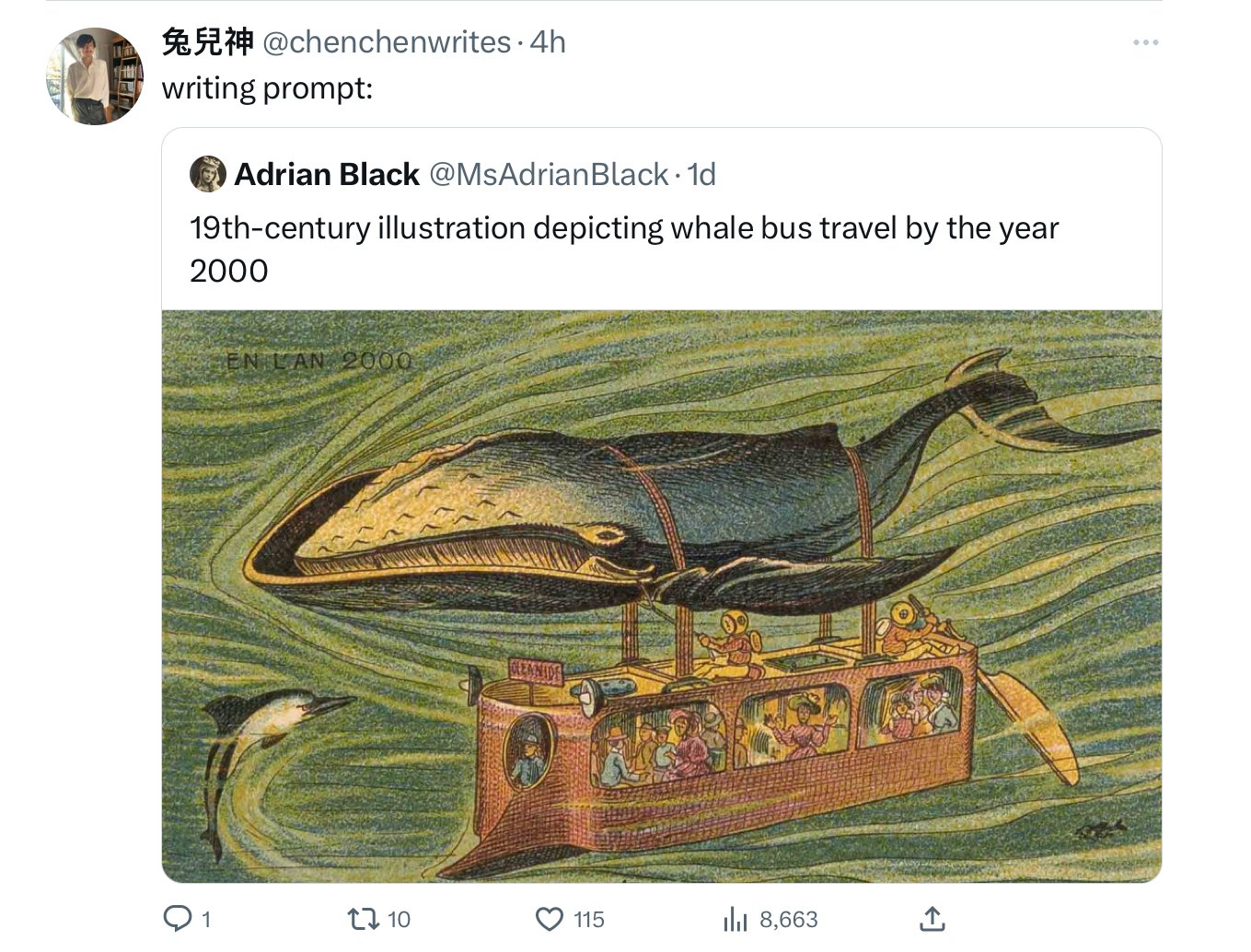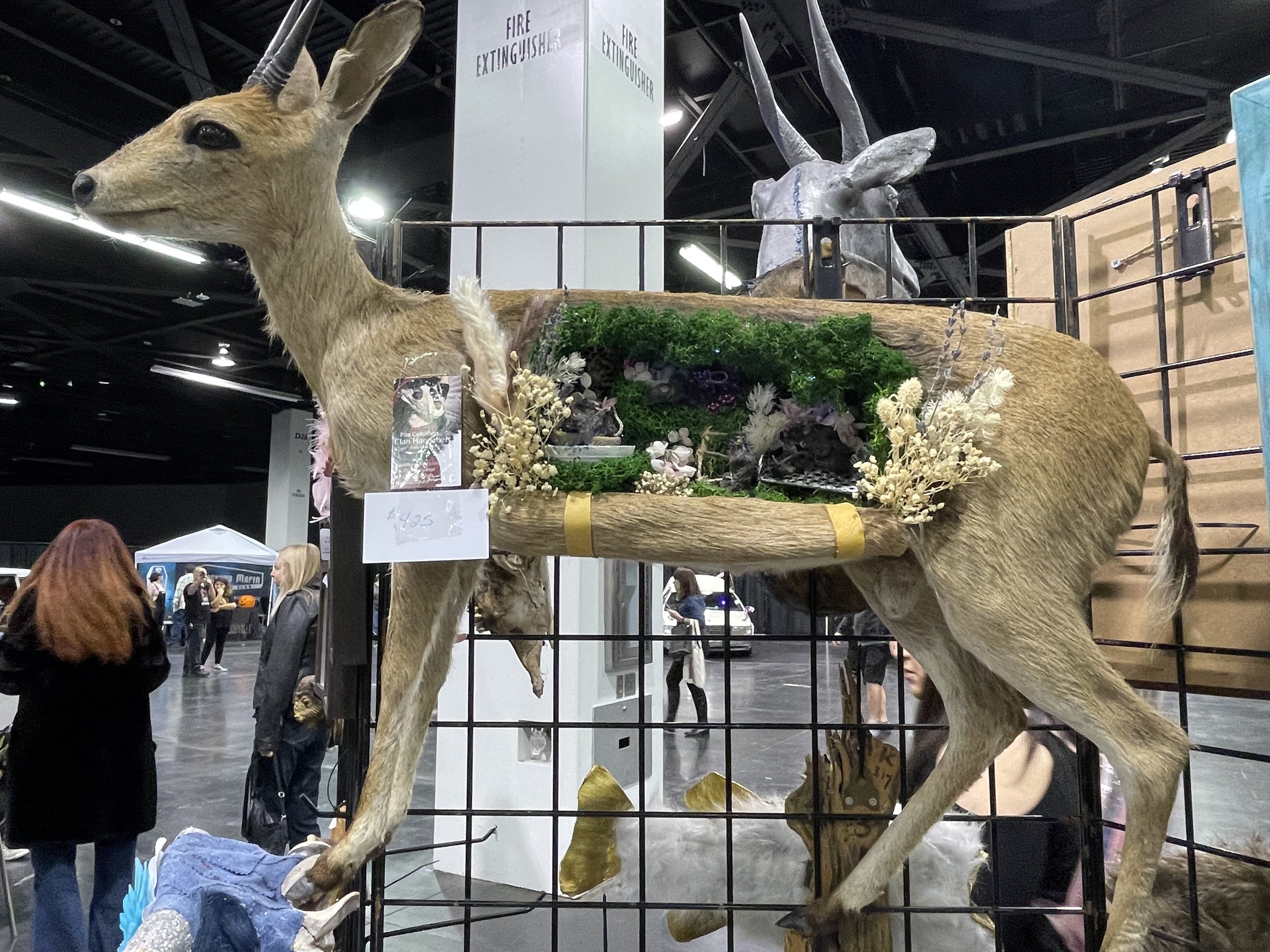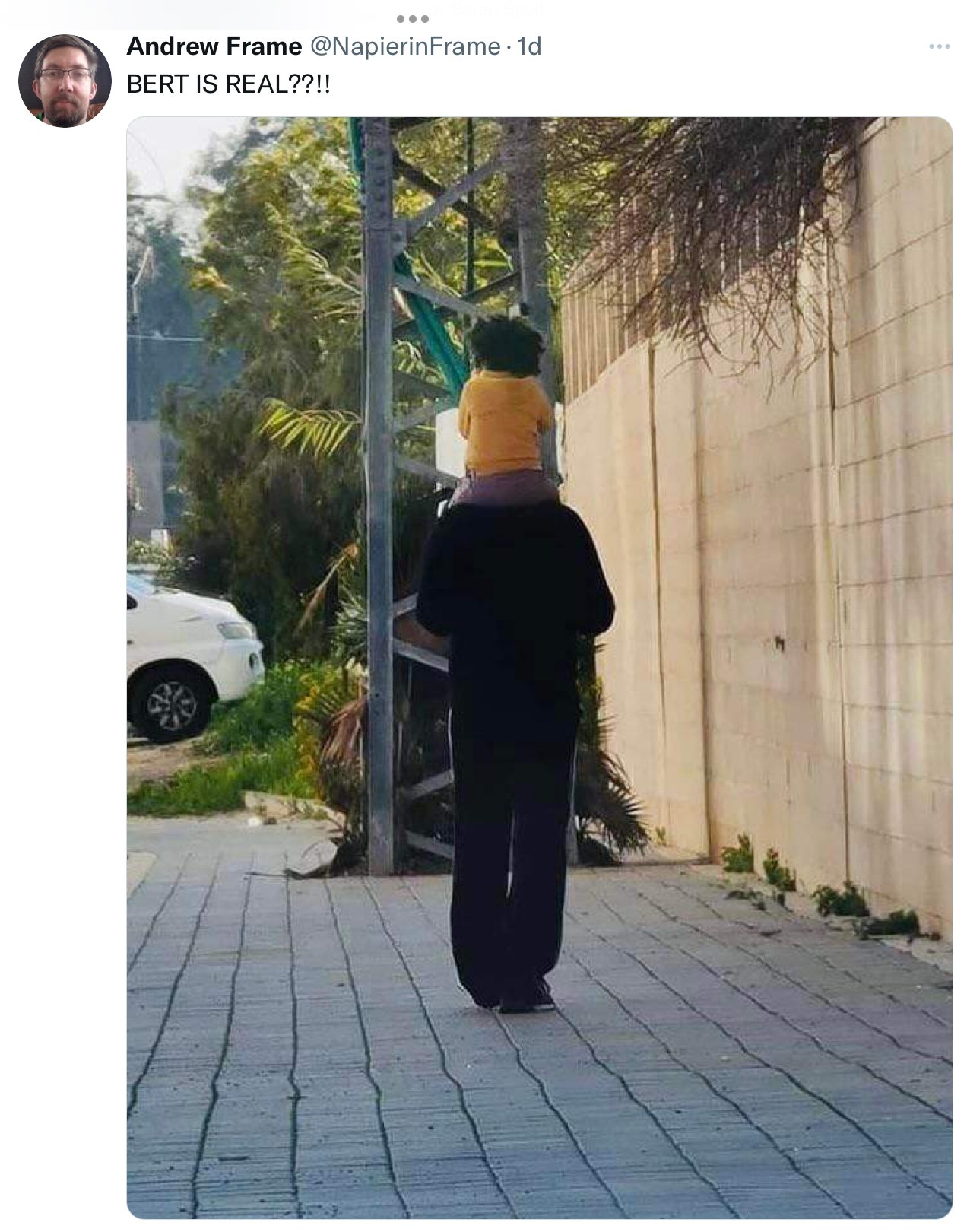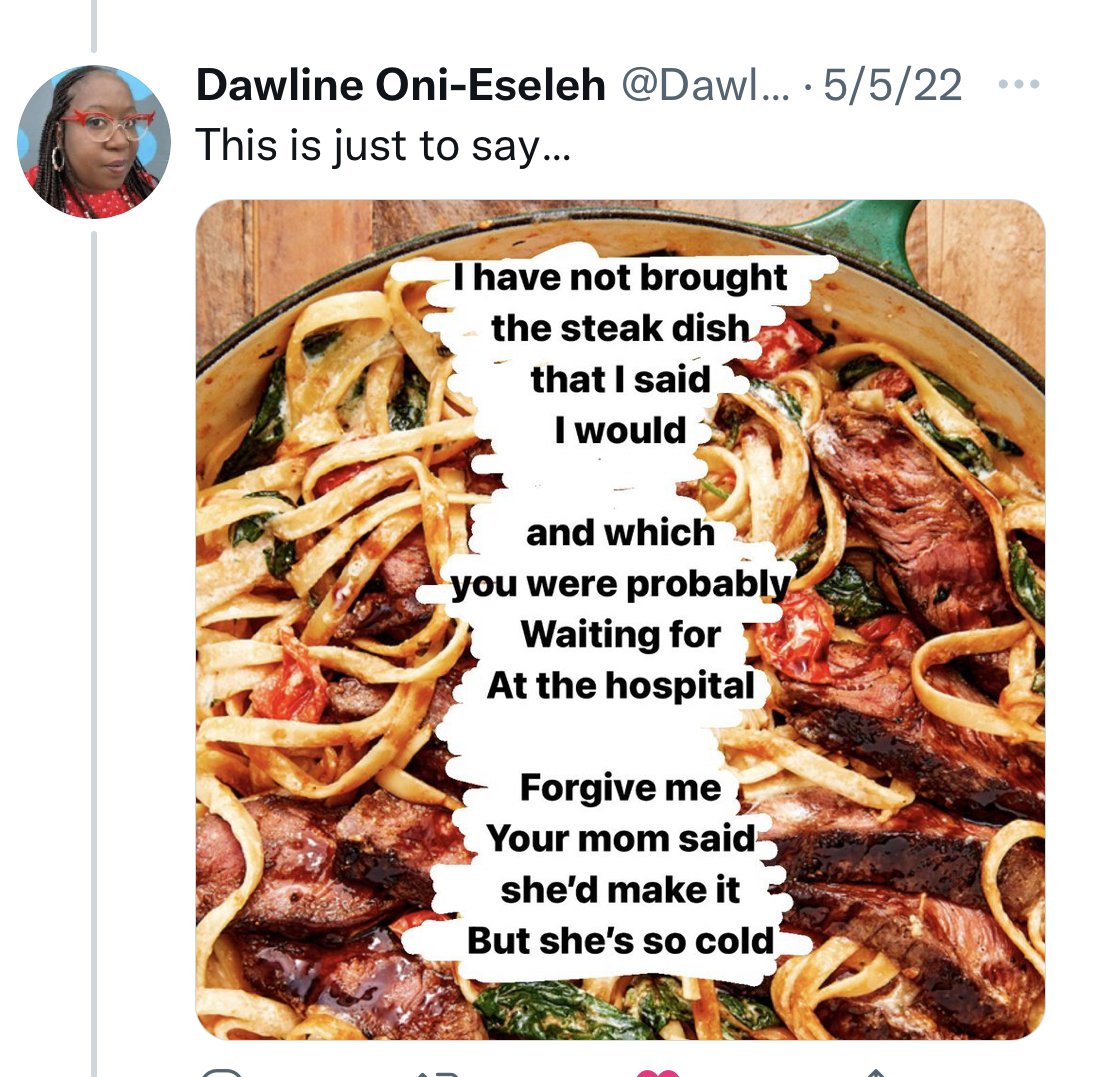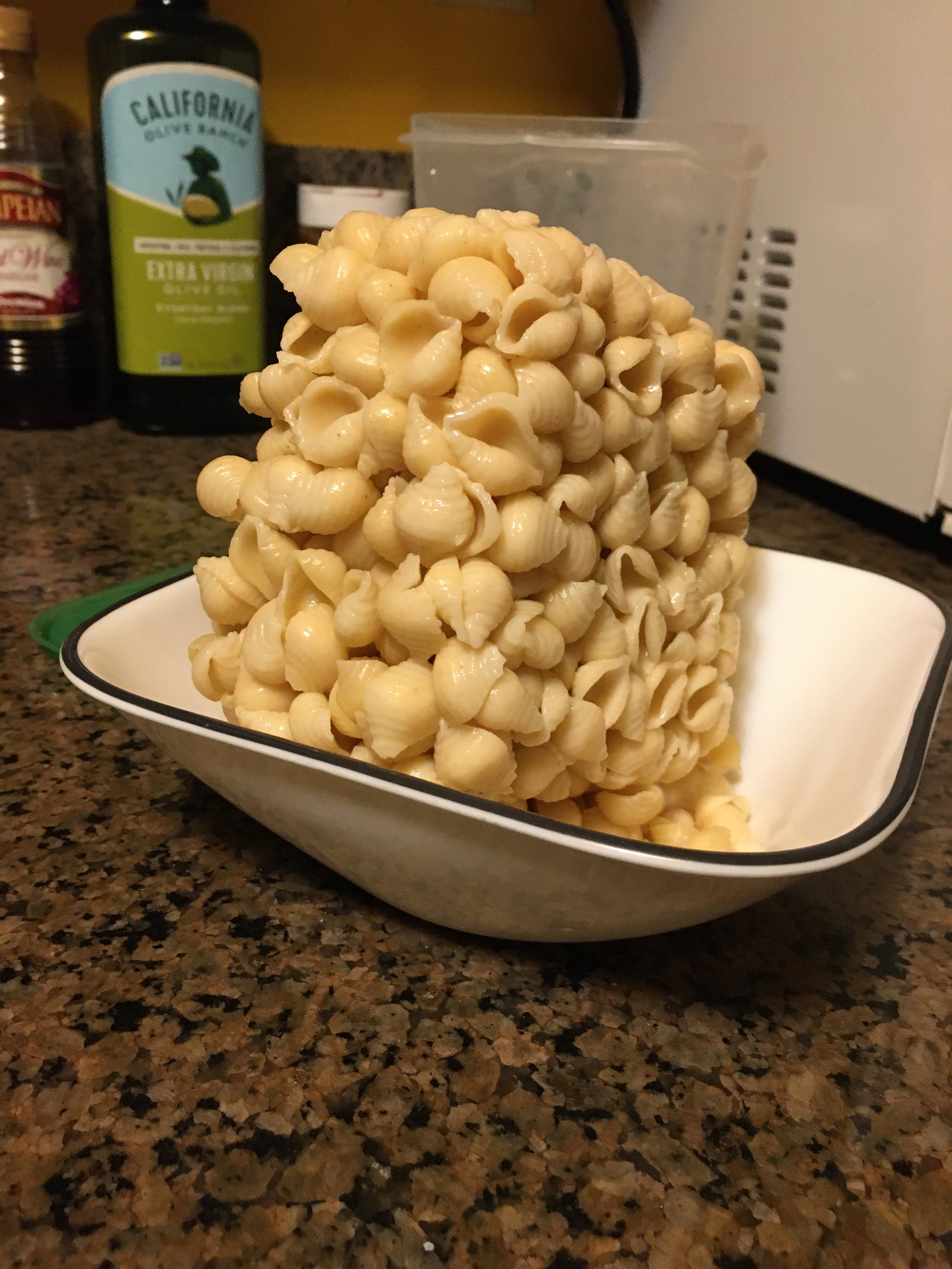As you may know, I despise AI—its theft from actual artists and writers, its environmental impact, the pretense that a chatbot can attain sentience or overcome bias if given enough stolen data and most of all, the inhumanity and dishonesty of those promoting it to devalue actual human labor and experience. While there are some applications for it, such as medical researchers using large language models to study partial genome sequences, most is just the newest NFT scam bubble.
Living is to create and learn—whether painting, drawing, writing, analyzing or problem solving—through the process and struggle. And to sometimes fail, and by failing often learning more than by success. To outsource thinking and making choices—necessary for every creative endeavor—is to hire someone else to drink the wine and participate in the evening’s conversation or to hold the hand of a loved one dying in a hospital.
I so appreciate Joseph Fasano for his generous sharing of others’ poems and for his own poems, especially this one. Here is a link to the poem: https://poets.org/poem/student-who-used-ai-write-paper
For the first prompt, describe a list of tasks that demonstrate love of another human or for an animal or for life itself in a story, poem or essay. Perhaps that is caring for a loved one or pet, planting flowers for bees, picking up trash from a creek or beach or climbing a hill to see the best view of sunset.
The second prompt is write a love (but not necessarily romantic love) poem or story using the following list of words: “let,” “fall,” “grasses,” “life,” “precious,” “earth,” “free,” “living,” “miraculous” and “work.”
The last prompt is to write what your “miraculous task” is whatever genre you choose.
Bonus prompt: write an ekphrastic poem or story from this painting, or write about tools from an animal’s perspective.
Bonus, bonus prompt: Write about who you would choose to sit on this porch swing with and what the moment would be like. Describe the wind, the scents in the air, the water of the Gulf, sound of birds, whatever would evoke bliss for you.
Good luck writing! Remember we’ve almost made it through the challenge! Good luck!





















